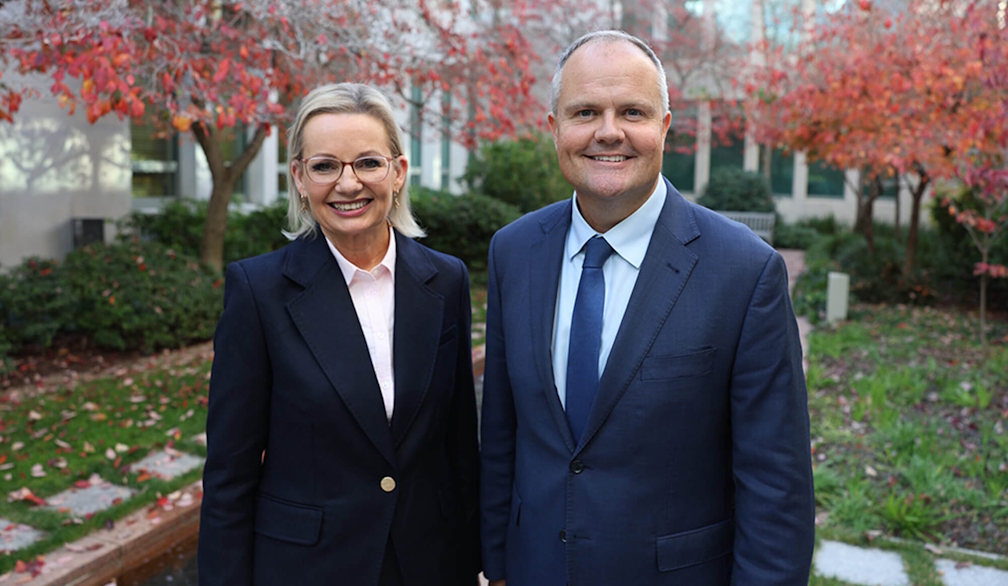Thinking about working for yourself? Here are some helpful tips to consider

Thinking about leaving your job and jumping into the world of freelancing and contracting? It can be exhilarating and give you scope to do the work you want to do, but there are some downsides too – and not just the obvious ones.
Roland Bleyer is the founder of Australia’s leading independent financial comparison site specialising in personal loans, car loans and credit cards – Creditworld.com.au. He has some important advice for Australians considering leaving their nine-to-fives and jumping into the world of freelancing and contracting.
“Quitting your traditional job is a momentous occasion in anyone’s career – being your own boss is a big step. However, there are hitches too – just like every other gig,” Bleyer said.
“On paper, freelancing looks like happy days. Committing to multiple clients to take on various assignments without having to commit to a single employer – what a dream. It is important not to be swept up into the ‘perfect’ illusion in order to make informed and practical decisions for your career moving forward.
“Making the decision to go freelance is a very personal choice. Considering all of the pros and cons of freelancing – not just the obvious ones – can help guide your decision.”
Pro: Freedom to take on work that you choose
“Being your own boss means that you have the freedom to pick and choose the projects and clients you want to work for. Saying no or turning away a client that doesn’t fit into your schedule, or match your personal belief system, can be truly empowering experience,” Bleyer said.
Con: No fixed income
“While the notion of not having a fixed income can sound daunting at first glance to someone who has been locked in to a secure salary for years, it can absolutely have its benefits,” Bleyer emphasised.
“I have listed ‘no fixed income’ as a con to freelancing, which it can be for someone who struggles to save money or hasn’t accrued a raining day fund, it can also mean that your income has the potential to drastically increase if you chose so. Just how work can deplete, it can also multiply. When you chose to do so, as a freelancer, you have the agency to pick up additional projects as you wish as supplementary income for quieter periods.”
Pro: More freedom to negotiate deals and your own rate
According to Bleyer, freelancing means that you can breathe a sigh of relief that you will never again have to walk into your boss’ office and negotiate your salary. Instead, as a freelancer you can dictate and change your hourly rate as you see fit.
“You also have the ability to take on as much work as you like which means that you can accelerate your earnings by working more,” Bleyer said.
“This is both empowering and very satisfying, especially if you are working towards a firm financial goal of buying a car, home or an investment property.”
Con: Maintaining a work-life-balance requires more attention
“As a freelancer, something you will miss about a traditionally structured workplace is that everyday at four or five pm everyone will expect you to gather your things and leave your desk behind. You can absolutely still enjoy a working-day experience when you work for yourself, you just have to put measures in place to ensure your work doesn’t bleed into your personal space and time,” Bleyer outlined.
Pro: You aren’t locked in to anything long term
“Boss from hell? Client not agreeing to your quote? The good news about freelancing is that you’re not locked in to anything. Once you have wrapped up a project for a client there is no formal commitment from you to continue the relationship if you chose not to,” Bleyer added.
Con: Loan and credit applications may be more challenging
“Loan and credit applications can absolutely be more challenging for people who work for themselves. However, there are options available. I recommend looking around and finding lenders that will lend to people who are self employed,” Bleyer explained.
“When you apply for a personal loan, the lender simply wants to know you have the ability to repay the loan on time, each and every month. Due to the sometimes unpredictable nature of self-employment, pay cheques may not be as steady as they would be in other forms of employment, which makes the loan a higher risk for the lender.
“With that being said, it is still possible to get approved for a personal loan when you’re self-employed. To find approval, you would need to apply for a loan with a lender that allows for self-employed applicants. Loans may be non conforming loans, specialist loans or low doc loans.
“The other aspect in all of this is your credit rating. Regardless of whether you are employed or self employed, you can improve your credit rating by making sure you pay bills on time, keep your credit card balance at zero at the end of the month and avoid pay day loans.”
According to Bleyer, he recommends all freelancers be prepared to provide a wider range of documentation than other borrowers. If you opt for a low-doc loan, you may have to cover higher loan costs, either in terms of interest or fees, due to the riskier nature of the loan.
Roland Bleyer is the founder of Creditworld, a website which allows Australians to compare the best deals on loans and credit cards so they can find the one that best suits their needs. Bleyer is considered a financial expert, and has appeared on TV and various other publications to discuss the industry.
https://www.creditworld.com.au








